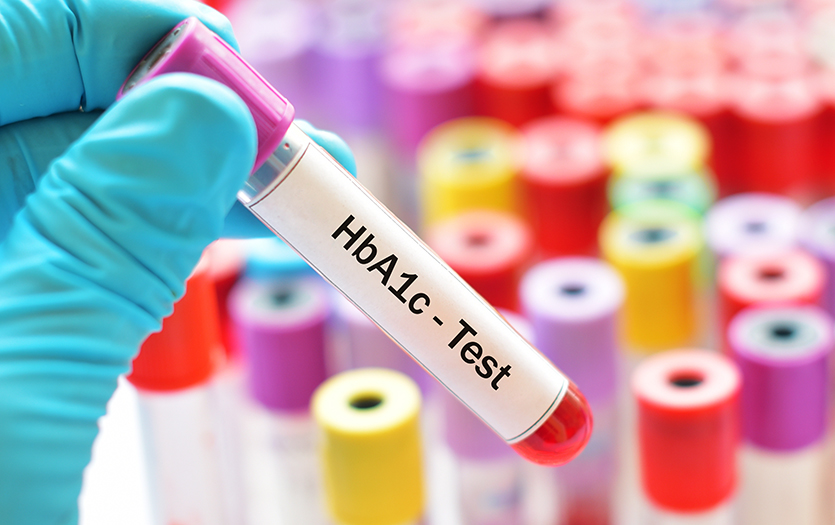
This post was written by Ann Vick, lab chemistry specialist, Parkview Health.
One of the most effective tools for early diabetes detection and prevention is the Hemoglobin A1C test. In this post, we'll address the most frequently asked patient questions about how the test works and why it is important.
What is Hemoglobin A1C?
Hemoglobin A1C, also known as glycohemoglobin, measures the average amount of glucose (blood sugar) in your body over the last three months. Healthcare providers use this test to detect prediabetes, diagnose type 2 diabetes and monitor glucose control in those already diagnosed diabetes.
When should I have a Hemoglobin A1C test performed?
Experts recommend hemoglobin A1C testing if you’re over 45 years old or younger with risk factors for developing type 2 diabetes. Those may include:
-
Being overweight or obese
-
Having a parent or sibling with type 2 diabetes
-
Being physically active less than 3 times a week
-
Having non-alcoholic fatty liver disease (NAFLD)
-
Having had gestational diabetes (diabetes during pregnancy)
If your result after initial testing is normal, your healthcare provider will recommend when repeat testing is appropriate based on your age and risk factors.
If your result indicates that you have prediabetes, your healthcare provider will likely recommend repeat testing every year.
If your result indicates that you have diabetes, your healthcare provider will likely recommend repeat testing at least twice a year, but testing more often might be needed.
Talk to your healthcare provider about how often is right for you.
Do I need to fast for a Hemoglobin A1C test?
You don't need to fast before getting a Hemoglobin A1C test, but your healthcare provider may order other testing at the same time, such as a lipid profile, which does require fasting.
How does the Hemoglobin A1C test work?
Your red blood cells contain a protein called hemoglobin, which is responsible for carrying oxygen throughout the body. When you have glucose in your blood, it sticks to the hemoglobin through glycation. The more glucose in your blood, the more it will stick to your hemoglobin. The hemoglobin A1C test measures the amount of glucose attached to your hemoglobin.
What does my Hemoglobin A1C result mean?
Hemoglobin A1C results are reported as a percentage. The higher the percentage, the higher your blood glucose levels over the past three months.
The following ranges are used to interpret your Hemoglobin A1C result.
-
Normal: <5.7%
-
Prediabetic: 5.7-6.4%
-
Diabetes: >6.4%
If you are diagnosed with diabetes, your healthcare provider may give you a different Hemoglobin A1C goal based on your treatment goals and other factors.
Your Hemoglobin A1C test will also include an eAG (estimated average glucose) result. This result is similar to the data you see when monitoring your blood glucose at home. The eAG is an average that includes your glucose when you are fasting and your glucose when you are not fasting so the result may be different than the blood glucose results you see on your home meter.
What should I do if my Hemoglobin A1C result is high?
The good news is that you can reduce your hemoglobin A1C levels by changing your diet, modifying your lifestyle, and, in some cases, taking medication. Talk to your healthcare provider to develop a plan to reach your lowered hemoglobin A1C goal.
Is there anyone who shouldn't have Hemoglobin A1C testing performed?
The type of hemoglobin present in your body is determined by genetics. Most adults possess Hemoglobin A, while a small percentage have other types known as hemoglobin variants. The accuracy of Hemoglobin A1C results may be influenced by the following variants:
-
Hemoglobin C trait
-
Hemoglobin E trait
-
Hemoglobin S trait (sickle cell trait)
-
Hemoglobin SC disease
-
Hemoglobin S disease (sickle cell disease)
If you believe that you might have a hemoglobin variant, talk to your healthcare provider about the best testing options to monitor your diabetes risk.
A red blood cell circulates in your body for about three months. Any condition that significantly changes this time period may affect your Hemoglobin A1C result. Examples of this may include significant blood loss/blood transfusion or diseases such as hemolytic anemia. If you believe that you might have a condition that affects your red blood cells, talk to your healthcare provider about the best way to monitor your risk for diabetes.
Final insights
Parkview Health Laboratories offers Direct Access Testing (DAT) for Hemoglobin A1C to patients without requiring a physician's order or scheduling an appointment. With multiple convenient locations, getting tested is simple and efficient. Visit a DAT location near you and take proactive steps to monitor your health.



